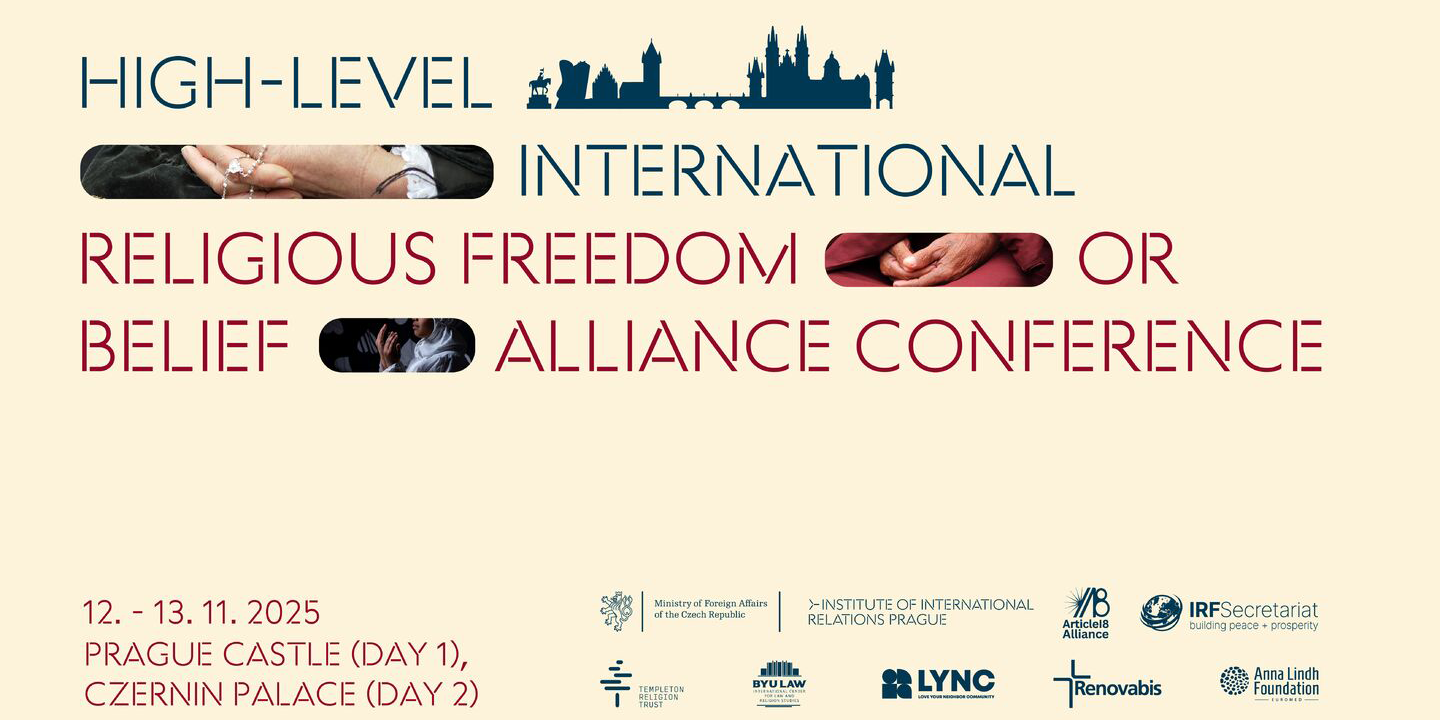
Remarks delivered at the High-Level International Religious Freedom or Belief Alliance Conference
The following remarks were delivered during the High-Level International Religious Freedom or Belief Alliance Conference by Elisabeth Pramendorfer, Geneva Director at the Global Centre, for the panel discussion, “Genocide prevention – the early warning role of freedom of religion or belief.”
Excellencies, colleagues, dear friends,
We meet at a moment when genocides are unfolding in Sudan and in Gaza, and as atrocity crimes – from the Uyghur Region of China to the Central Sahel, from Ukraine to the Democratic Republic of the Congo – are becoming the norm rather than the exception.
I am deeply appreciative of the previous interventions, each of which underscored that violations of freedom of religion or belief are rarely isolated acts, nor are they confined to matters of individual conscience. They affect the collective space in which communities express identity, gather, and participate equally in society. When that freedom is denied, whole groups are pushed to the margins, their exclusion heightening the risk of persecution and, ultimately, atrocity crimes. I also particularly appreciated that every panelist highlighted the critical role of accountability. Today, impunity is the single biggest driver of atrocity crimes – and perpetrators learn from each other.
This year, as we mark twenty years of the Responsibility to Protect, the Global Centre has reflected on two decades of lessons – both hard-won and too often unheeded. Two observations stand out.
First, since 2005 we have significantly deepened our understanding of how atrocity crimes occur, the risk factors that enable them – including violations of freedom of religion or belief (FoRB) – and the conditions that can prevent or mitigate them. From Palestine, to the Uyghur Region of China, Syria, Iraq, Afghanistan or Myanmar, it is evident how the denial of religious freedom is consistently woven into broader systems of control. FoRB has been instrumentalized to secure political power, deployed to marginalize or dehumanize populations, and used both as a precursor to and a defining feature of atrocity crimes.
What all these situations have in common is that they did not emerge without warning. Sitting here alongside the UN Special Rapporteur on FoRB, I want to acknowledge the tremendous work carried out by both thematic and country-specific Special Procedures mandate holders, alongside human rights defenders, affected communities and wider civil society. They have consistently collected information, issued alarms, and urged international action. In Myanmar, warnings of the systematic dehumanization of the Rohingya emerged as early as the late 1990s. In Syria, UN experts and civil society documented long before 2011 how restrictions on religious freedom eroded pluralism and laid the groundwork for identity-based violence and the commission of mass atrocities. We do not suffer from a lack of information. We suffer from a lack of political will to act upon it.
Effective action requires understanding how perpetrators manipulate religious identity. States and non-state actors alike do not only repress religious freedom; they exploit it as a narrative tool. This is the second observation I wish to share, reflecting on the past two decades of R2P and atrocity prevention. Today, no government openly claims that atrocities are “internal matters.” Instead, violence is reframed as a “fight against terrorism,” an effort to “preserve social harmony,” or an expression of “religious tradition.” We see this in the Uyghur Region of China in the name of countering extremism, and in Afghanistan, where gender apartheid is justified through assertions of religious authority.
At the same time, perpetrators often seek to cast conflicts as religious when they are not. Long before the onset of the genocide in Gaza, the situation in Israel and the Occupied Palestinian Territory is a prime example – a situation too often framed in religious terms by those who gain from polarization, while it is instead rooted in occupation, apartheid policies, and settler colonialism. Such framing obscures accountability and further inflames global divisions, surfacing deep-seated Islamophobia and antisemitism across societies. When religion is manipulated to justify atrocities, the consequences extend far beyond the immediate theater of conflict.
Today, more than ever, we possess the tools, knowledge, and information needed to identify atrocity risk factors long before they escalate. What we need – and what has always been lacking – is the courage to question official narratives and the clarity to see through the manipulation of belief. Recognizing and confronting these tactics is not a peripheral task of atrocity prevention; it is central to it.
Thank you.